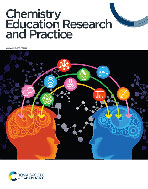A meta-analysis of effectiveness of chemical bonding-based intervention studies in improving academic performance†
Abstract
The purpose of this study is to meta-analytically evaluate research that used chemical bonding-based interventions to improve academic performance. Through meta-analysis, the present study used several keyword patterns (e.g., chemical bonding, experimental, chemistry education, science education) via relevant databases (e.g., ERIC, Springer Link, Taylor & Francis, Wiley Online Library Full Collection, and Scopus) to find chemical bonding-intervention studies. Thus, it included 50 chemical bonding-based intervention papers (15 dissertations, 32 articles, and 3 proceedings). The current meta-analysis found that the overall effect-size of chemical bonding-based intervention studies was 1.007, which shows a large effect. Findings regarding moderator analysis displayed non-significant differences between educational levels and a statistically significant difference between the intervention types. This meta-analysis reveals that the chemical bonding-based intervention studies are effective at improving the participants’ academic performance in terms of chemical bonding. Further, it denotes that when the abstract nature of chemical bonding is overlapped with the features of the intervention type, the interventions (e.g., cooperative learning and enriched learning environment with different methods) result in better academic performance. Since this study, like all meta-analyses, points out consistent and inconsistent findings among published research, further meta-analysis studies should be undertaken to resolve any contradictory findings.


 Please wait while we load your content...
Please wait while we load your content...